Holidays bring joy and merriment as family and friends gather. Some pets enjoy the holiday fun, while others find the household changes and visitors stressful. Pets with ocular, vision, or other medical conditions often are particularly stressed by upsets to their routine, and also susceptible to other holiday dangers like food, travel, and decorations. Envision More Veterinary Ophthalmology shares tips to help keep your pet safe this year.
#1: Avoid feeding holiday goodies to your pets
You may be tempted to let your pet sample the delicious holiday meal, but foods out of the norm can endanger pets. Toxic food items, including chocolate, xylitol, onions, garlic, raisins, and macadamia nuts, can damage your pet’s organs and land them in the hospital. Your pet’s system is fine-tuned to digest their particular diet, and sudden changes like extra table scraps can cause vomiting or diarrhea. Poultry bones may seem like a good chew toy, but they can easily splinter and damage or block your pet’s intestines.
Fatty foods are especially problematic for pets with eye conditions, or with metabolic diseases that can increase blood cholesterol (e.g., diabetes or Cushing’s disease). A sudden extra fat intake in pets with abnormal fat metabolism can inflame their pancreas and cause not only severe illness, but also fat to spill from the bloodstream into the eye. This condition, called lipid aqueous or lipid uveitis, causes sudden white discoloration and inflammation that temporarily blinds your pet and can lead to secondary complications like glaucoma.
#2: Place decorations carefully
Many popular holiday decorations can be dangerous to pets, including:
- Christmas trees — Trees can fall if your pet bumps them, and live trees sit in water filled with chemical additives, bacteria, and fungi. Secure the tree to a wall to prevent tipping, and cover or block access to the tree base.
- Plants and flowers — Holly, mistletoe, and poinsettia cause drooling, vomiting, or diarrhea if consumed by your pet, and lilies are highly toxic to cats. Check out the ASPCA list of toxic and non-toxic plants to choose safe plants for your home, or use silk alternatives.
- Candles — Clumsy or curious pets can knock over candles, which can start a fire or burn your pet. Place candles out of your pet’s reach, monitor your pet while they’re near open flames, and put out the candles when you leave the room.
- Tree ornaments — Pets can knock off ornaments, which may shatter and cut your pet. Salt-dough ornaments can poison your pet. Choose safe, non-breakable, plastic ornaments, and place them high up where your pet cannot reach.
- Lights and cords — Pets who bite into an electrical cord can be shocked, suffer mouth burns, or start a house fire. Unplug cords when not in use and supervise pets while lights are on.
Vision impaired pets can bump into or trip over new objects in a previously familiar space, and injure themselves and damage your decor. Place Christmas trees off your home’s “main drag,” or use a low fence to guide pets as they navigate around the tree. Avoid placing too many decor items at your pet’s level, and use tables or countertops instead.
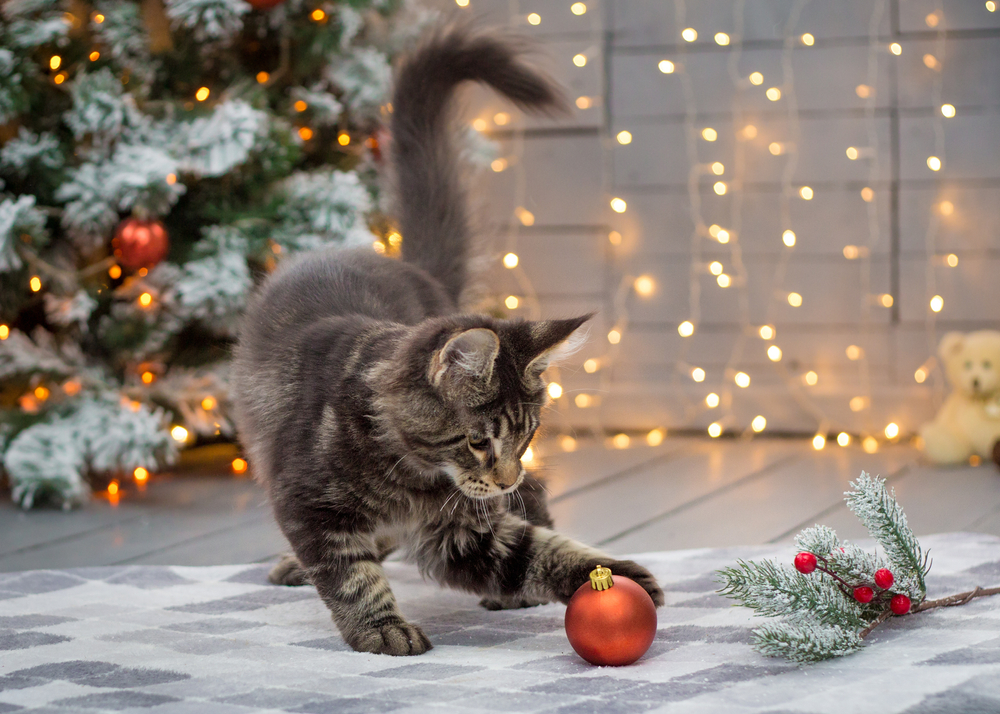
#3: Keep pet routines consistent
Holidays can be hectic, and you may have extra house guests and activities that affect your daily routine. Maintain a normal schedule for pets who require daily medications, eye drops, or special diets to avoid missed doses. Also, help pets feel less stressed by waking them and going to bed at the same times each day and keeping to their normal exercise routine.
#4: Monitor pets while interacting with guests
Pets who become stressed during gatherings or around strangers should be kept in a separate, quiet space with familiar toys and comfy bedding. If your pet does like interaction, ensure your guests do not feed them scraps, and alert guests to your pet’s visual limitations. Vision impaired pets can be easily startled, so monitor them and ensure they can go to a safe place if they become overwhelmed. Overly stressed pets may benefit from anxiety supplements, medications, anxiety wraps, pheromones, or calming music.
#5: Prepare for potential pet medical issues
If you’re traveling with your pet, or your veterinarian will be closed over the holidays, you should have a contingency plan. Do you have enough medication refills to get you through the next few weeks? Who will you call if you run out? If your pet has a medical emergency, where will you go? Keep important medical records with you while traveling, and familiarize yourself with the nearest veterinary emergency facility. If your pet ingests something potentially toxic, you can also call the ASPCA Animal Poison Control Center or the Pet Poison Helpline.
Follow our holiday tips to reduce your holiday stress and keep your pet safe. Envision More Veterinary Ophthalmology provides eye health care for your pets year-round, so contact us if your pet has an eye emergency, is due for a recheck examination, or needs medication refills to get you through the holiday season.

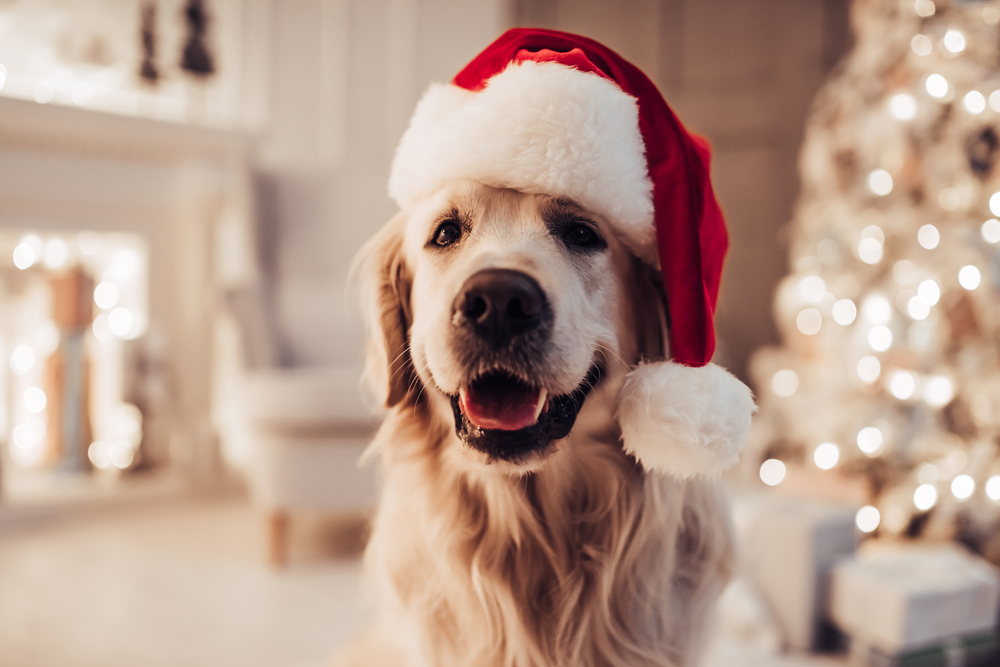
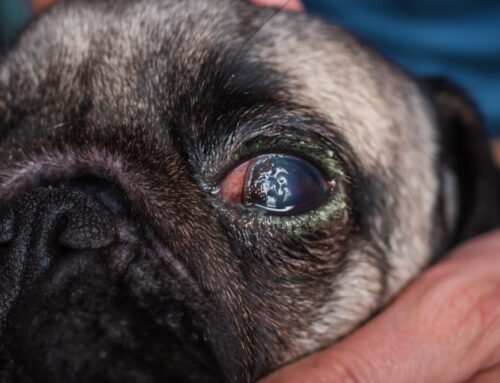
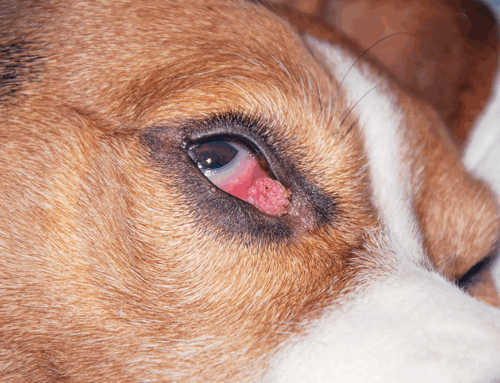
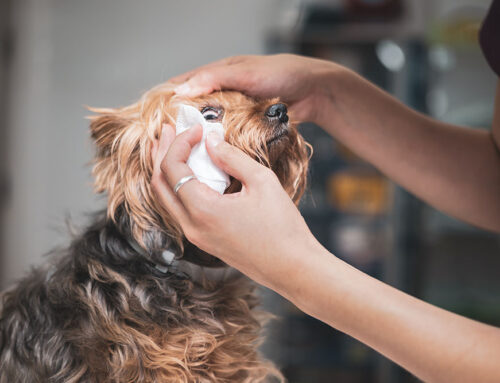
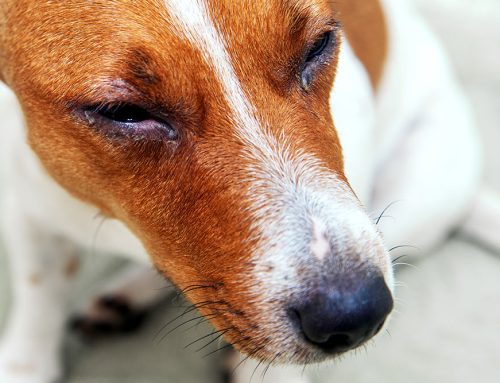

Leave A Comment